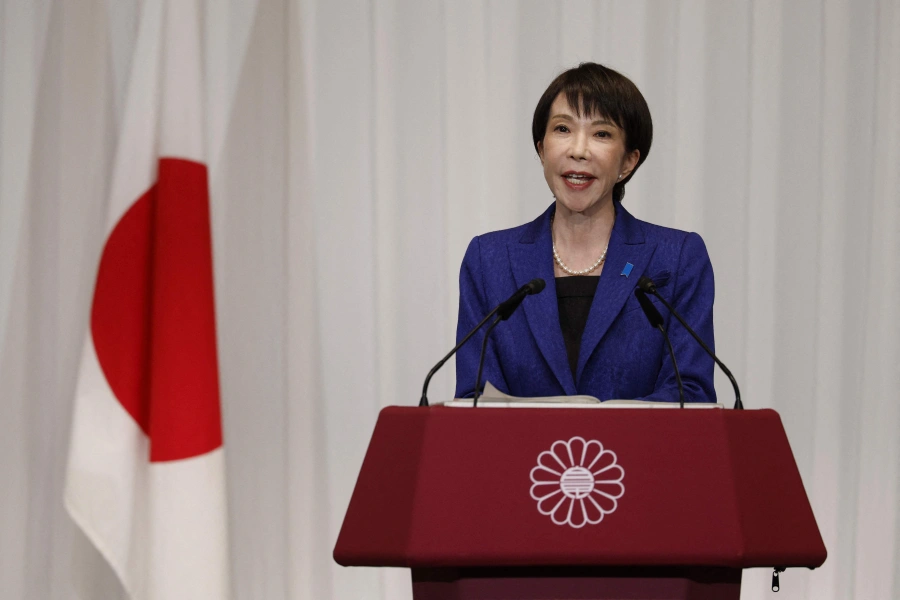Without an admission that violence may not have been necessary, there can be no repentance or apology and, therefore, no reconciliation
Can the humble “sorry” change the course of history? Or in the case of Nepal, could an apology for the violence of the insurgency pave the way for genuine reconciliation and justice?
For meaningful reconciliation, “sorry” must be genuine. It cannot be like one of those apologies offered by men called out by the #MeToo movement, which expresses deep remorse, but finds a subtle way to suggest that it was the accuser’s fault for leading them on in the first place.
A heartfelt apology packs a lot into the humble “sorry.” It creates the basis for forgiveness. It opens alternative pathways to reconciliation between the aggrieved and aggressor beyond what justice from trials and punishment can offer. It can heal even the most painful wounds.
Age of Apology
Many governments have resorted to national apologies as a way of addressing historical injustices and signalling an era of rapprochement. Two national apologies were offered in October alone.
Earlier this month, the Norwegian Prime Minister Erna Solberg apologised to women, and their children, who had had relationships with German soldiers during the World War II. Known as “German girls,” these women and their children were often kept in camps, ostracized, stigmatized and, in many cases, deported.
On October 25, UK Home Secretary, Sajid Javid, offered an apology to the people that were forced to take a DNA test to prove their right to settle in the UK. Many Nepalis with relatives in the British Gurkha were affected.
In an interview with BBC Nepali service, Gyanraj Rai, a Gurkha activist, appeared to echo the broader sentiment when he said that they were happy because the apology represented the hope that the future situation for British Gurkhas would improve.
Putin: Ceasefire must lead to lasting peace

Often that’s all an apology can do, offer hope that an injustice comes to an end. The events leading up to the apology, often fraught with bitter discourse and divisiveness, is itself a part of the national healing process.
The recent Norwegian and UK apologies are not the only ones. Over the last fifty years, several countries have offered national apologies. It even inspired Time magazine to put together the list of the top ten national apologies. Not all apologies need words.
During a state visit to Warsaw, Poland in December 1970, German Chancellor Willy Brandt attended a commemoration of Jewish victims of the Warsaw Ghetto uprising of 1943. At the event, Brandt spontaneously dropped to his knees and kneeled silently in front of the commemoration monument. He kneeled in silence, revealing later in his autobiography that “carrying the burden of the millions who were murdered, I did what people do when words fail them.”
Brandt’s silent kneel became a powerful apology and symbol of repentance of the Holocaust. Some countries celebrate their apology and use it to remember the grief, suffering and loss from historical injustices.
Since 1998, Australia has been celebrating May 26 as National Sorry Day. On May 26, 1997, Australia’s federal parliament tabled a report of the national inquiry into the forced separation of Aboriginal and Torres Strait Islander children from their families. It was not until a decade later in 2008 that the Australian Prime Minister successfully secured parliament’s approval on the motion of “Apology to the Indigenous Australian Stolen Generation,” representing a formal apology from the federal government.
In Australia’s case, National Sorry Day began as a civilian movement in response to the failure to issue the apology in 1997. But even after the Australian federal parliament extended the national apology, National Sorry Day continues to be celebrated as a “commitment to improve the lives of Indigenous Australians.”
Peace and reconciliation
Next month, November, marks the 12th year of the Comprehensive Peace Accord signed between the Government of Nepal and then Communist Party of Nepal (Maoist). The peace accord marked the end of the decade-long armed struggle and set the basis for a new democracy.
Much of what was outlined in the peace accord has been achieved. Parliament voted to abolish monarchy. Constituent assembly elections were held. A new constitution has been adopted. The Federal Republic of Nepal is well on its way. The Comprehensive Peace Accord (CPA) has been a resounding success in almost all aspects, except in achieving a sense of peace and closure.
Nepal’s approach to dealing with conflict-era cases through a transitional justice process is struggling. Transitional justice is a process for healing a society scarred by conflict. It seeks to achieve this by investigating conflict related crimes, establishing the truth, acknowledging the suffering of victims, enforcing accountability and providing compensation.
Nepal’s approach to transitional justice centres around the Truth and Reconciliation Commission (TRC) and the Commission of Investigation on Enforced Disappeared Persons (CEIDP).
Of the 63,000 cases brought to TRC, preliminary investigations have been launched into only about 2,800 of them. Only about 1,200 of the 3,000 reported cases at CEIDP have begun preliminary probes.
TRC and CEIDP have been hobbled even before they were truly functional. In 2015, the Supreme Court struck down several provisions of the Transitional Justice Act, which defined the scope, jurisdiction and authority of TRC and CEIDP.
Amendments to the Transitional Justice Act have yet to be brought before parliament, although a draft was released for public comment earlier this year. Many stakeholders were critical of the revisions, which they claimed offered a blanket amnesty for conflict-era crimes. Although the amendments to the Transitional Justice Act draws from the Supreme Court’s verdict, stakeholder comments, principles of transitional justice, current context, international experiences, its core inspiration is the CPA of 2006.
That accord agrees to establish the TRC, investigate cases seriously violating human rights and commits “to create an environment of reconciliations in the society.” But it offers very little about the principles for “reconciliation.”
Use of the 2006 comprehensive peace accord as the primary basis for resolving conflict-era cases maybe exactly where Nepal’s initiative for transitional justice fails.
Apology and Repentance
The 2006 CPA, despite its title, is not a peace agreement – it is a ceasefire and political agreement on the course that is to be pursued. It is mechanical in its approach, setting out the process with precision. In part Nepal’s subsequent peace has held because of that precision – for example, the Maoist within cantonment, the army within its barracks, constituent assembly – made the process easier to implement.
But the 2006 peace accord and its derivate, Transitional Justice Act, makes no apology for the violence perpetrated by both sides of the conflict. It declares the “beginning of a new chapter of peaceful collaboration by ending the armed conflict,” without offering even the slightest hint of regret at the violence. The 2006 peace accord almost suggests that the armed conflict was necessary.
Without an admission that violence may not have been necessary in ushering in the political-economic-social changes that followed, there can be no repentance for the violence. Without repentance, there can be no apology. Without an apology and repentance, there can be no reconciliation.
And without reconciliation, without healing the scars of conflict, there can be no future in peace.
As the 12th year of the 2006 peace accord approaches, perhaps we need to find the courage for a simple “sorry” to secure our peaceful future.
Bishal_thapa@hotmail.com






































